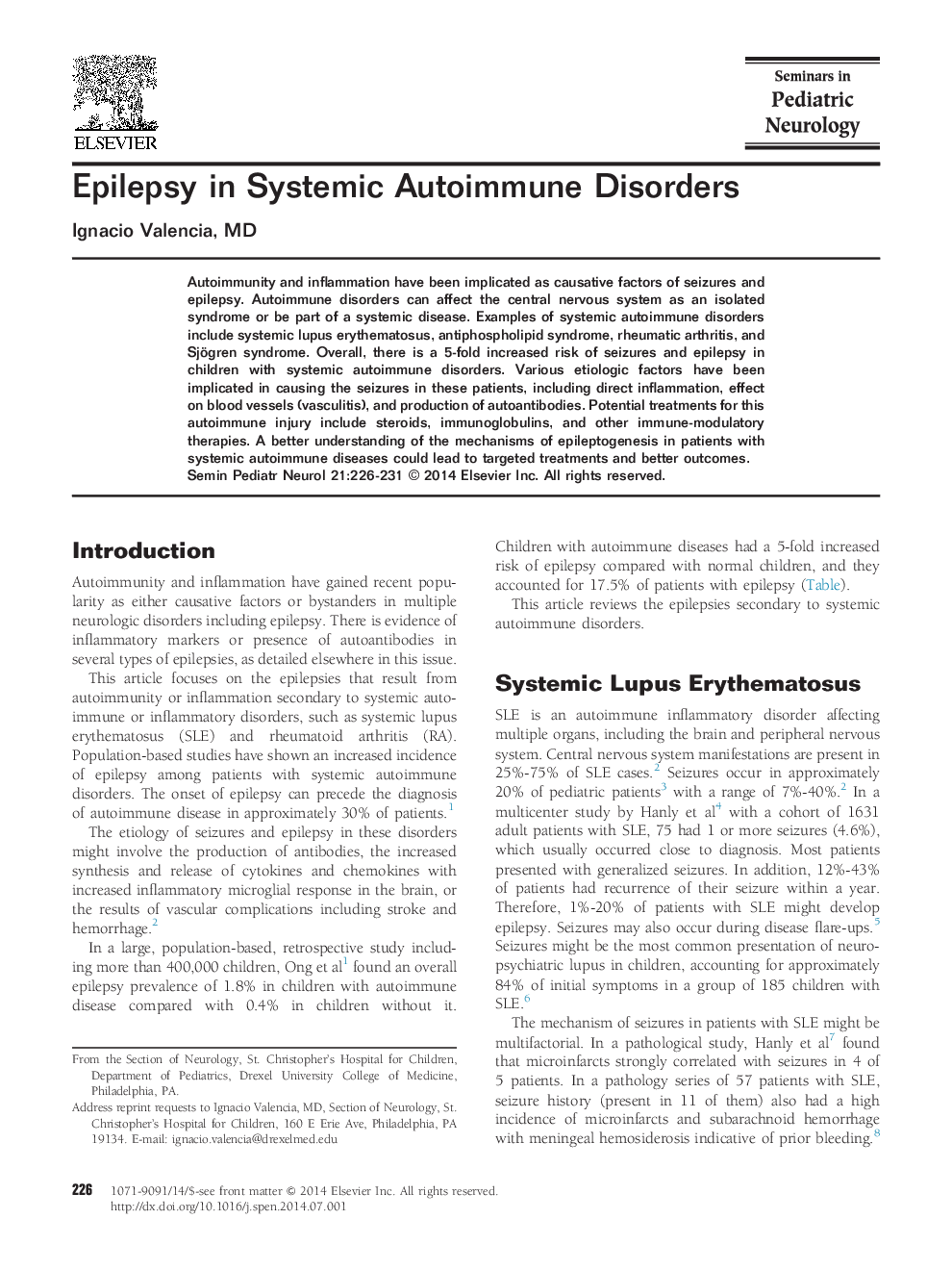| Article ID | Journal | Published Year | Pages | File Type |
|---|---|---|---|---|
| 3090779 | Seminars in Pediatric Neurology | 2014 | 6 Pages |
Autoimmunity and inflammation have been implicated as causative factors of seizures and epilepsy. Autoimmune disorders can affect the central nervous system as an isolated syndrome or be part of a systemic disease. Examples of systemic autoimmune disorders include systemic lupus erythematosus, antiphospholipid syndrome, rheumatic arthritis, and Sjögren syndrome. Overall, there is a 5-fold increased risk of seizures and epilepsy in children with systemic autoimmune disorders. Various etiologic factors have been implicated in causing the seizures in these patients, including direct inflammation, effect on blood vessels (vasculitis), and production of autoantibodies. Potential treatments for this autoimmune injury include steroids, immunoglobulins, and other immune-modulatory therapies. A better understanding of the mechanisms of epileptogenesis in patients with systemic autoimmune diseases could lead to targeted treatments and better outcomes.
